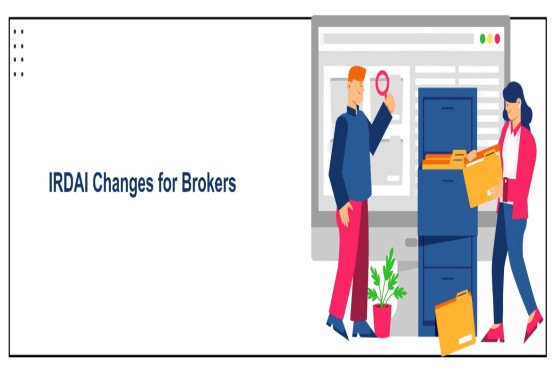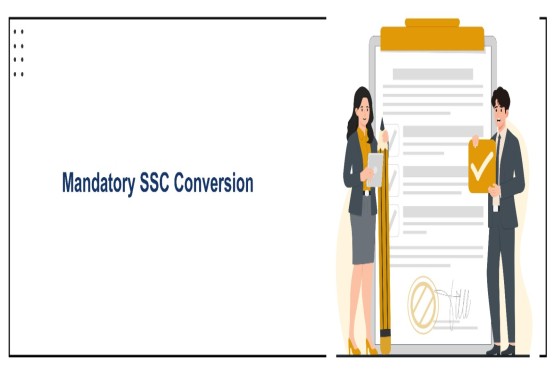Ownership structures are becoming a important component of employee compensation and business growth strategies in the rapidly changing corporate environment of today. Knowing the distinction between shares and an employee stock option plan (ESOP) is important for anybody making financial and professional decisions, whether they are an investor, working professional, startup founder, or entrepreneur. While shares signify actual ownership in the business, ESOPs are frequently used by companies to draw in and keep top people. Although they are both types of equity, there are substantial differences in their goals, structures, rights, and advantages. Understanding how ESOPs operate can help employees access prospects for long-term financial gain. The decision of whether to issue shares or ESOPs can have an effect on investor confidence, employee morale, and valuation for founders and HR directors. In a straightforward and approachable manner, this article will take you through the essential ideas, salient distinctions, advantages, and tax ramifications of ESOPs and shares. After reading this Article, you will know which of these two models best fits your position inside a company, whether you are an investor, founder, or employee.
What is ESOP? (Employee option plan)
Companies offer structured benefit plans called Employee Stock Option Plans (ESOPs), which enable workers to purchase company stock at a predetermined, fixed price following a predetermined vesting period, or time of service. ESOPs are options that can be exercised at a later date, typically at a price below the market value, as opposed to being issued outright like common shares. Because of this, ESOPs are a common tool used by startups and expanding companies to encourage employees, retain top personnel, and match employee objectives with corporate success. When properly implemented, ESOPs can increase employee loyalty and productivity while also generating substantial wealth for workers.
How does ESOP works in a company?
The first step in an ESOP's organized process is for the business to provide stock options to certain employees. These options allow the employee to buy a certain number of shares at a predetermined exercise price, but only after the vesting period the time frame during which the employee is required to remain with the company has passed. The employee can exercise the options that is, purchase the shares at the agreed-upon price after the vesting period is over. Employees may profit from selling their shares at a greater price if the company's market value has improved. ESOPs are often regulated by applicable laws like the Companies Act of 2013 and SEBI regulations in India, and they are overseen by a written ESOP policy that has been approved by the board and shareholders. The system as a whole aids businesses in keeping valuable personnel, managing startup expenses, and fostering a culture of performance where workers are rewarded for the company's achievements.
What are Company Shares and Why Do They Matter?
Units of ownership in a business are represented by company shares. When a person owns stock in a business, they become a shareholder and get rights like the ability to vote, the right to receive dividends, and a portion of the business's assets and earnings. Shares are essential to a company's ability to generate money and allocate ownership to investors, founders, and the general public. A company's shares are primarily divided into two categories:
Common shares, often known as equity shares, grant owners ownership rights, voting rights, and a portion of the company's income (dividends). The largest risk is borne by equity shareholders, who also stand to gain the most.
Preference Shares: These shareholders often do not have voting rights, but they do get a fixed dividend ahead of equity shareholders and have priority upon a company's collapse.
In the event of private placements or initial public offerings (IPOs), shares can be bought straight from the business; in the case of listed corporations, they can be bought through stock markets. Shares offer instant ownership, so the shareholder can start using their rights as soon as they purchase them, in contrast to ESOPs. Knowing shares is crucial since they establish who owns the company, who benefits from its earnings, and who is responsible for the risks associated with its operations. Owning shares ties your financial interest to the company's performance and valuation, regardless of whether you are an employee or an investor.
ESOP vs Shares: Key Differences Explained Simply
Although shares and ESOPs both deal with firm ownership, their structure, goals, rights, and accessibility are very different. Timing and control are where the biggest differences can be seen. In addition to rights like voting, dividend income, and transferability, shares grant the holder instant ownership. ESOPs, on the other hand, are options to purchase shares in the future, typically at a discounted price, and only after a vesting period has passed. They are not shares at the time of grant. While shares can be owned by any investor, including the general public, promoters, or institutional investors, ESOPs are normally solely offered to employees as a means of encouraging and retaining them. Additionally, ESOPs cannot be transferred or sold until they are exercised and converted into shares, whereas shares can be freely traded (particularly in public businesses). From a legal and financial standpoint, ESOPs are a right to purchase stock, whereas shares represent actual equity. Tax ramifications also vary; shareholders are normally only taxed on gains from the sale of shares, while workers are taxed on ESOPs both at the time of exercise and later at the time of sale.
Advantages of ESOP for Employer and the Employee?
Employers and employees can profit greatly from implementing an Employee Stock Option Plan (ESOP), particularly in startups, tech firms, and growth-stage organizations. ESOPs give workers a special chance to own a portion of the business without having to make any upfront investments. Since the employees' personal financial success is now closely tied to the company's success, this fosters a strong sense of loyalty and belonging. ESOPs have the potential to become an important vehicle for accumulating wealth over time, particularly if the business does well or goes public. Employers view ESOPs as a strategic tool for luring and keeping great people without having to deal with the immediate financial strain of high compensation. Because stock options usually vest over a number of years, it also encourages employees to stay longer, which lowers attrition. Additionally, by encouraging a culture that is performance-driven and shared ownership, ESOPs assist in coordinating employee efforts with long-term business objectives. ESOPs are a great method for startups and MSMEs to save money while still providing competitive pay. By providing ESOPs, businesses can create a group of driven stakeholders who act more like owners than merely employees, which will spur innovation, responsibility, and expansion.
Benefits of owing company shares
One of the best ways to accumulate wealth and have a say in a company's future is to own corporate shares. Shares provide both employees and investors with instant ownership in addition to a number of strategic and financial advantages. You have the right to vote on important business decisions, get dividends when earnings are announced, and profit from the stock's capital growth as a shareholder. Shares provide individual investors with a means of entering the stock market and earning returns over time, whether through short-term trading or long-term growth. Early investors in private companies frequently have the chance to make a sizable return if the business is eventually acquired or goes public by purchasing shares. Employees receive financial benefits and status when they are given equity shares, which entitles them to a portion of the company. Shares provide complete shareholder rights from the time of issuance, in contrast to conditional ESOPs. All things considered, shares are a versatile and effective investment tool that offer not only the possibility of profit but also control and transparency over the business's activities.
Taxation on ESOP vs Shares in India: What You Must Know
Employees and investors alike should be aware of the substantial variations in taxation between ESOPs and shares in India. There are two phases to the taxation of ESOPs. First, under the Income Tax Act, the difference between the market value and the exercise price is considered a perquisite and is taxed as part of the employee's pay income when the employee exercises the option, that is, purchases the shares at the predetermined price. This sum is taxed in accordance with the relevant income tax slab after being applied to the total income. When an employee sells their shares, the ESOP enters its second taxing cycle. Depending on how long the shares were kept following the exercise, the gains in this case are liable to capital gains tax. The shares are regarded as short-term capital gains and are subject to the appropriate taxation if they are sold within 24 months (for unlisted companies) or 12 months (for listed companies). They are subject to lesser taxes as long-term capital gains if kept for a longer period of time. On the other hand, shares bought directly (as opposed to through ESOPs) are only subject to taxes at the time of sale, not at the time of purchase. 15% short-term capital gains apply if listed shares are sold within a year. A 10% tax without indexation is applied to long-term capital gains that surpass Rs.1 lakh in a fiscal year. Depending on the holding duration and the shareholder's residency status, unlisted shares are subject to varying tax rates. Essentially, ordinary shares are taxed only once at the moment of sale, whereas ESOPs are taxed twice: once at exercise and again at sale. For those who own ESOPs, this means that timing and tax planning are crucial.
Which is better ESOP and Shares?
The role a person plays in the company and their financial objectives will determine whether ESOPs or shares are preferable. For workers who wish to advance with the company and seek long-term capital building, ESOPs are perfect. They are appealing because they don't require any initial financial outlay and are sometimes provided at a reduced cost. They do, however, have restrictions such as vesting periods and exercise tax, and the value is only recognized if the business does well. Conversely, shares provide instant ownership along with the ability to vote and receive dividends. If listed, they can be freely traded, giving shareholders additional control and liquidity. Typically purchased through investing, shares entail financial risk but also offer the possessor greater freedom and flexibility. In conclusion, shares are more appropriate for investors and founders seeking active ownership and returns, whereas ESOPs are more suited for staff members who wish to be compensated for their dedication and growth-promoting contributions to the business. Both play a role in the business environment, and the "better" choice genuinely depends on the role and goals of the individual.
Conclusion
Although shares and ESOPs both symbolize ownership in a business, they have various functions and provide unique benefits according on your status as an investor, founder, or employee. For workers who wish to get rewards for their performance and loyalty without having to make an upfront investment, ESOPs are perfect. They establish a lasting connection between worker effort and business success. Conversely, shares offer direct ownership and are more appropriate for people seeking instant control, voting rights, and liquidity (particularly in publicly traded corporations). Even while ESOPs have dual taxation and a vesting period, shares are only taxed at sale, giving exit planners more freedom. You can make an informed decision that supports your investment or professional objectives by being aware of the legal, financial, and tax ramifications of both options. Understanding how equity functions is crucial in today's business environment, regardless of whether you're starting your own firm or making contributions to one.
FAQ’s
Q1. Are shares and ESOPs the same thing?
Ans. No. Options to purchase shares at a predetermined price in the future are known as ESOPs. Instant ownership in a business is represented by shares.
Q2. Do holders of ESOPs have the ability to vote?
Ans. Not until they become shareholders and execute their options. They have the same rights as normal shareholders once they are exercised.
Q3. Is it possible to sell ESOPs on the open market?
Ans. Not right away. Depending on whether the company is listed or not, they can only be sold after being exercised and converted into shares.
Q4. In the event that an employee quits, what happens to ESOPs?
Ans. Within a certain time frame, only vested ESOPs—those that have finished the vesting period—may be exercised. Typically, unvested ESOPs are forfeited.
Q5. Is ESOP subject to taxes in India?
Ans. Indeed. Both the moment of exercise (as salary income) and the time of sale (as capital gain) are subject to tax.
Q6. Can anyone buy stock in the company?
Ans. Indeed. Depending on whether the company is private or public, its founders, public investors, employees, or institutions may possess shares.
Q7. Do startups benefit from ESOPs?
Ans. Indeed. With ESOPs, firms can save money, retain staff, and reward performance without having to pay out money right away.











































































_crop10_thumb.jpg)


































































_crop10_thumb.jpg)
_crop10_thumb.jpg)



_crop10_thumb.jpg)


_crop10_thumb.jpg)





_crop10_thumb.jpg)

_crop10_thumb.jpg)














-suratgujarat-section-158_crop10_thumb.jpg)
-suratgujarat_crop10_thumb.jpg)
-(33)_crop10_thumb.jpg)



-ahmedabad_crop10_thumb.jpg)
-learn_crop10_thumb.jpg)

-learnn_crop10_thumb.jpg)



























































_crop10_thumb.jpg)























_Guidelines_learn_crop10_thumb.jpg)























_learn_crop10_thumb.jpg)
_crop10_thumb.jpeg)










_crop10_thumb.jpg)




_Second_Amendment_Rules,_2025_learn_crop10_thumb.jpg)







_learn_crop10_thumb.jpg)











































_learn_crop10_thumb.jpeg)























_learn_crop10_thumb.jpg)



_rd_roc_learn_crop10_thumb.jpg)
















_learn_crop10_thumb.jpg)














_learn_crop10_thumb.jpg)
_Learn_crop10_thumb.jpg)











































_learn_crop10_thumb.jpg)




_learn_crop10_thumb.jpg)













_crop10_thumb.jpeg)


















